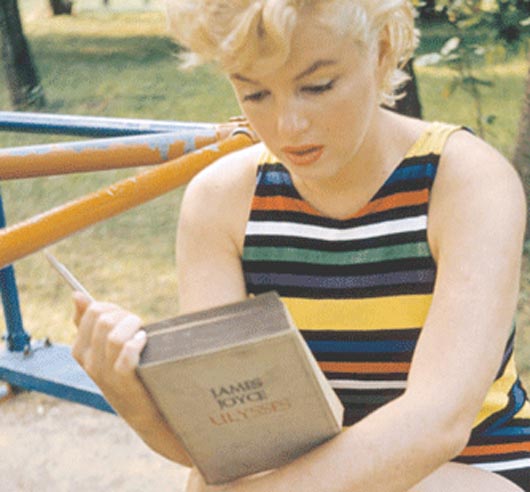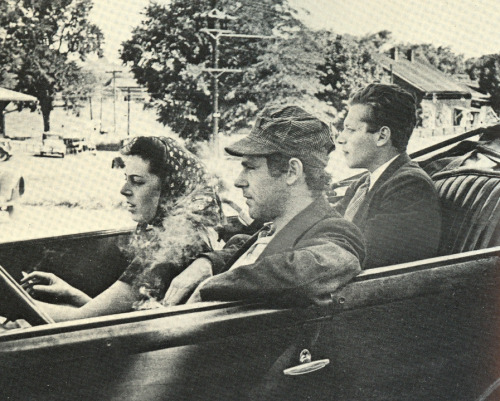 BOOKS
BOOKS In Which We Pretend To Take James Agee Seriously
 Thursday, May 9, 2013 at 11:42AM
Thursday, May 9, 2013 at 11:42AM 
All Sides
by ALEX CARNEVALE
James Agee read Ulysses in the summer of 1933. He almost immediately abandoned a writing project that had consumed him for the previous three years. "Joyce I think sees all sides and present them more consistently, clearly, and simultaneously than even Shakespeare," he cooed in wonderment.
 with Alma and Delmore Schwartz
with Alma and Delmore Schwartz
In the wake of Ulysses, a humbled Agee focused on his journalism.
He had failed at putting together an epic poem titled John Carter, so he immediately went to Tennessee on assignment, interviewed some poor people, and began writing a story about them. This was routine in those days, it was basically one of the twelve steps. After the story appeared his boss, Fortune editor Henry Luce, told him to go to Harvard Business School.
 Alma
Alma
Agee did not go, but Joyce was still left behind. He read Ulysses again and then once more before never touching it again, holding it at bay like someone staring at the sun. He described his work at Fortune like this: "It varies with me from a sort of hard masochistic liking to direct nausea at the sight of this symbol $, and this % and this biggest and this some blank - billion...But in the long run, I suspect the fault, dear Fortune, is in me: that I hate any job on earth, as a job and hindrance and semi-suicide."

He did consider taking his own life, sometimes standing on the sill of a skyscraper, looking over at whatever it was that lay below. The temptation was there, how could it not be?
Agee then began Proust, for he felt it was now time. It did not take. "He is very clearly one of the greatest people I've read any of," he wrote his friend. "But I shan't read him now. Even the little I've read convinces me that once you got going in him he wd absorb your mind and thinking for months or even a few years. Which is not at all good when you feel somewhere near ready to write." Instead he read Interpretation of Dreams and some Dashiell Hammett mysteries to pass the time.

The Fortune article that would begin his work on Let Us Now Praise Famous Men was suggested by editor Ralph Ingersoll. Agee accepted the time away from New York gratefully. He could not decide between two women, so went on with both, or wandered Greenwich Village's jazz clubs.
The manuscript he began writing, when I first read it in college, seemed appropriately serious. Poverty is the one subject about which it is useless to joke, but Agee seemed to turn that notion itself on his head. Rereading the book now, I realize I was entirely mistaken - Agee was completely serious as he waxed poetic about rural life. It is disappointing how much he misunderstood Ulysses.

Agee's writing at the time remained too lyrical for his subjects. They could not live up to his ideas about them. The writing pretended not to take itself entirely seriously, but the reality was that the author was never constance of the distance between himself and his subjects. This was his interpretation of Joyce, a way of asking how to be. His idol/peer called out in anguish, and Agee only heard part of the cry.
Alex Carnevale is the editor of This Recording. He is a writer living in Manhattan. He tumbls here and twitters here. You can find an archive of his writing on This Recording here. He last wrote in these pages about Jane Campion's Top of the Lake.

"Let It Be Me (live)" - Nina Simone (mp3)
"Single Woman" - Nina Simone (mp3)

 alex carnevale,
alex carnevale,  james agee,
james agee,  ralph ingersoll
ralph ingersoll 




























